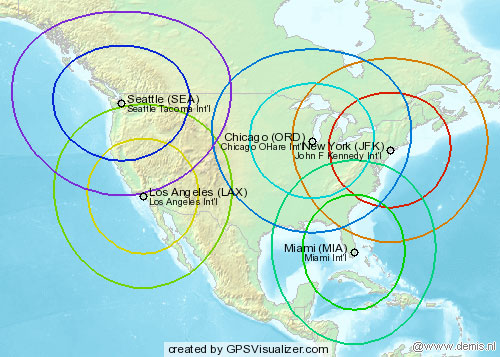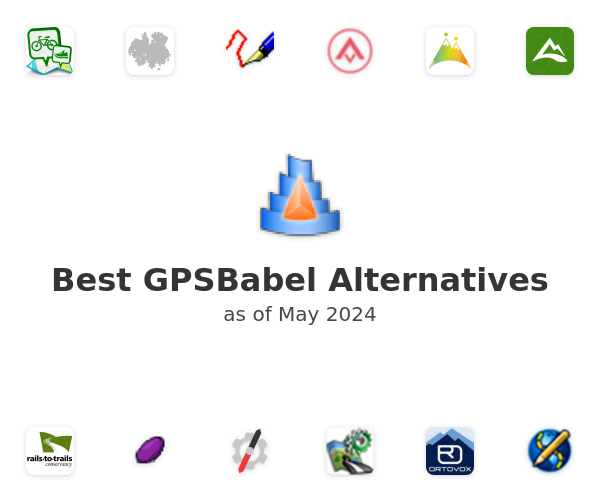

* Safety Depth: 5 meters to get highlighted soundings where I should not anchor due to weed/grass and to get rid of unimportant isolated dangers. * Shallow: 2 meters > Dark blue: keep out. They can be used in different ways but my boat (1.7 meters depth) and own philosophy gives this: Users generally prefer rhumb line because Could happen with a large motor vessel, I suppose… Rare indeed would be the case in which a two-point route long enough to benefit from GC Sailing would be traveled without need to change course for other tactical reasons (weather, traffic, etc.). Of course, other chart plotters may do this differently from OpenCPN.

If the A/P is doing GC Sailing, then you would see the XTE reported by OpenCPN diverging from zero, as expected. Alternatively, if it ignores XTE, and computes a running GC course based on the target waypoint location and current ownship position, then it is doing GC Sailing. If the A/P uses only XTE, then it is sailing Rhumb Line. The current GPS position and the target waypoint position are available in the messages sent above. If an autopilot is steering the boat, it may choose to follow GC route if it wants to. The Cross-track error (XTE) output by OCPN is calculated as for Rhumb Line Sailing, i.e. Note that despite the patch, devices must still be accessible as described in Where are the Chart Buttons "Piano Keys" at the bottom of the OCPN screen? Such links are visible in the GUIĪ new point Flatpak point fix has been pushed for this issue. * The first is to write the name of the device, perhaps something like /dev/ttyUSB0 in the GUI (one don't have to select from the drop-down list, it's possible to enter the device name as well) * The second is to create a device link as described in, the chapter on Fixed Device Names. * Even if the port is accessible it might not be visible in the UI. * There is a bug: * The port must be accessible.
GPSBABEL FAQ SERIAL
# The gpsbabel.See CF Dataport Connection problem There are some things related to serial data ports, in particular on Flatpak. org.commands += echo "target is not supported for out of source builds. org.commands += tools/make_gpsbabel_org.sh $$ shell_quote( $$WEB) $$ shell_quote( $$DOCVERSION) # may be overridden on qmake command line org.depends = gpsbabel gpsbabel.pdf FORCE no-external -output-file Ĭmands += genhtml -output-directory coverage_report Ĭmands = cppcheck -enable= all -force -config-exclude= zlib -config-exclude= shapelib $(INCPATH) $$ALL_FMTS $$FILTERS $$SUPPORT $$JEEPS xml -exclude=' zlib/*' -exclude=' shapelib/*' -o gpsbabel_coverage.xml Ĭmands += lcov -capture -directory. # extra ubuntu bionic packages: gcovr lcovĬmands += rm -f gpsbabel_coverage.xml Ĭmands += $(MAKE) CFLAGS= \"$(CFLAGS) -fprofile-arcs -ftest-coverage\" CXXFLAGS=\"$(CXXFLAGS) -fprofile-arcs -ftest-coverage\" LFLAGS=\"$(LFLAGS) -coverage\" &Ĭmands += gcov -r -o. # but works as expected when run with run-clang-tidy.Ĭlang- mands = run-clang-tidy.py $(RUN_CLANG_TIDY_FLAGS)Ĭlang- pends = compile_commands.json # An example is modernize-use-override which inserts repeadted overrides when run directly, # compilation options on the clang-tidy line after. # running clang-tidy directly and listing the # It seems to be better to use run-clang-tidy with the compilation database as opposed to # make clang-tidy RUN_CLANG_TIDY_FLAGS="-header-filter=.*\\\.h -checks=-*,modernize-use-nullptr -fix" QMAKE_EXTRA_TARGETS += compile_command_database # build the compilation data base used by clang tools including clang-tidy.Ĭompile_command_database.target = compile_commands.jsonĬompile_command_mands = $(MAKE) clean bear $(MAKE) If(equals(QT_MAJOR_VERSION, $$MIN_QT_VERSION_MAJOR):equals(QT_MINOR_VERSION, $$MIN_QT_VERSION_MINOR):lessThan(QT_PATCH_VERSION, $$MIN_QT_VERSION_PATCH)) /testo.d/*.

If(equals(QT_MAJOR_VERSION, $$MIN_QT_VERSION_MAJOR):lessThan(QT_MINOR_VERSION, $$MIN_QT_VERSION_MINOR)) | \ LessThan(QT_MAJOR_VERSION, $$MIN_QT_VERSION_MAJOR) | \ MIN_QT_VERSION_PATCH = $$ member( MIN_QT_VERSION_COMPONENTS, 2)Ĭount( MIN_QT_VERSION_MINOR, 0): MIN_QT_VERSION_MINOR = 0Ĭount( MIN_QT_VERSION_PATCH, 0): MIN_QT_VERSION_PATCH = 0 MIN_QT_VERSION_MINOR = $$ member( MIN_QT_VERSION_COMPONENTS, 1) MIN_QT_VERSION_MAJOR = $$ member( MIN_QT_VERSION_COMPONENTS, 0) MIN_QT_VERSION_COMPONENTS = $$ split( MIN_QT_VERSION.

# versionAtLeast() was introduced in Qt 5.10, so we cannot count on it being available.


 0 kommentar(er)
0 kommentar(er)
